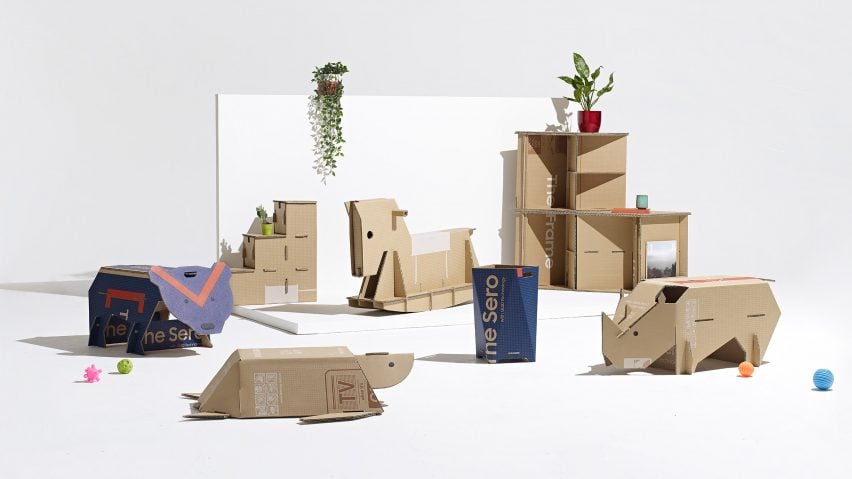
Top five cardboard furniture designs in the Dezeen x Samsung Out of the Box Competition revealed
A rocking horse, a series of animal companions and three storage solutions have been selected as finalists in Samsung and Dezeen's contest to create innovative household objects from repurposed cardboard packaging.
A jury comprising Samsung executives Kangwook Chun, Kyounghoon Kim and Jae Julien, alongside Dezeen's editor-in-chief Marcus Fairs and assistant editor India Block, selected the top five designs from a 15-strong shortlist, which we published last month.
Each design was assessed on its innovation, aesthetics, functionality and how practical it would be for someone to build at home.
"The quality of the shortlist was extremely high," said Fairs. "The top five designs are all simple to build, yet elevate the humble corrugated-cardboard material to create objects that are both useful and attractive."
"There were so many brilliant ideas that we didn't even think of and it was a pleasure to see so many people support the Eco-Package concept and share their creative designs with us," Samsung said. "These top five designs were outstanding among the many submissions."
The five finalists were based in Belgium, India, Portugal, Sweden and the UK, reflecting the wide range of entries received. In total, the contest attracted over 1,500 submissions from more than 80 different countries around the world.
The jury will convene later this month to determine the overall winner.
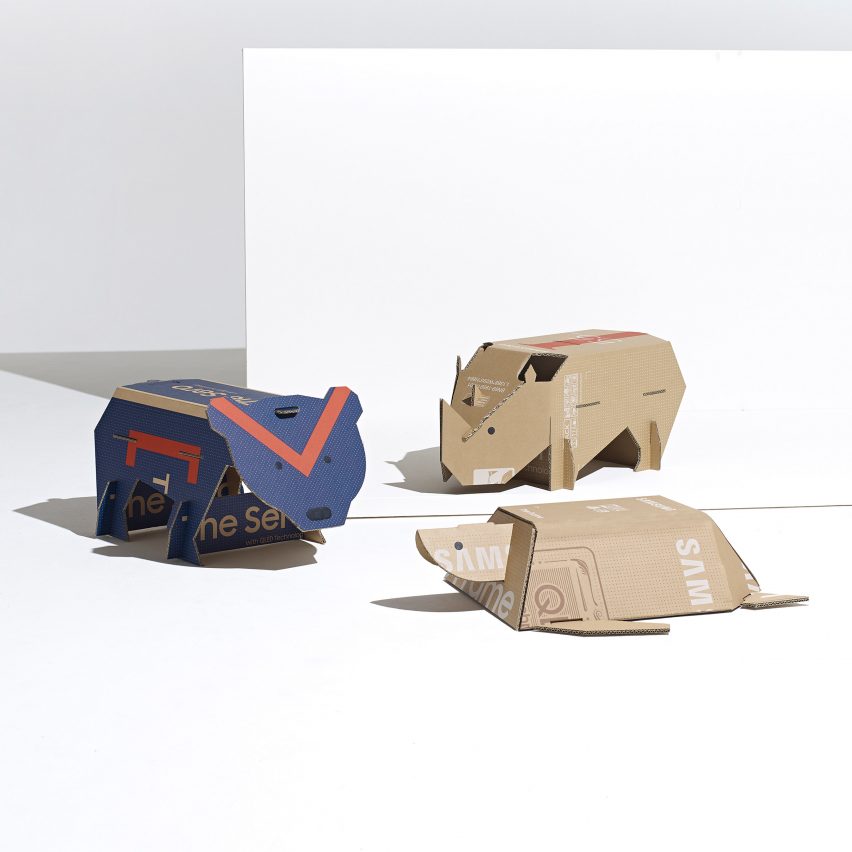
The competition draws from Samsung's Eco-Package concept, which aims to reduce waste by providing customers with a way to repurpose their television packaging into new household items.
Two of the top five designs transform the corrugated-cardboard boxes into animal-shaped toys for children.
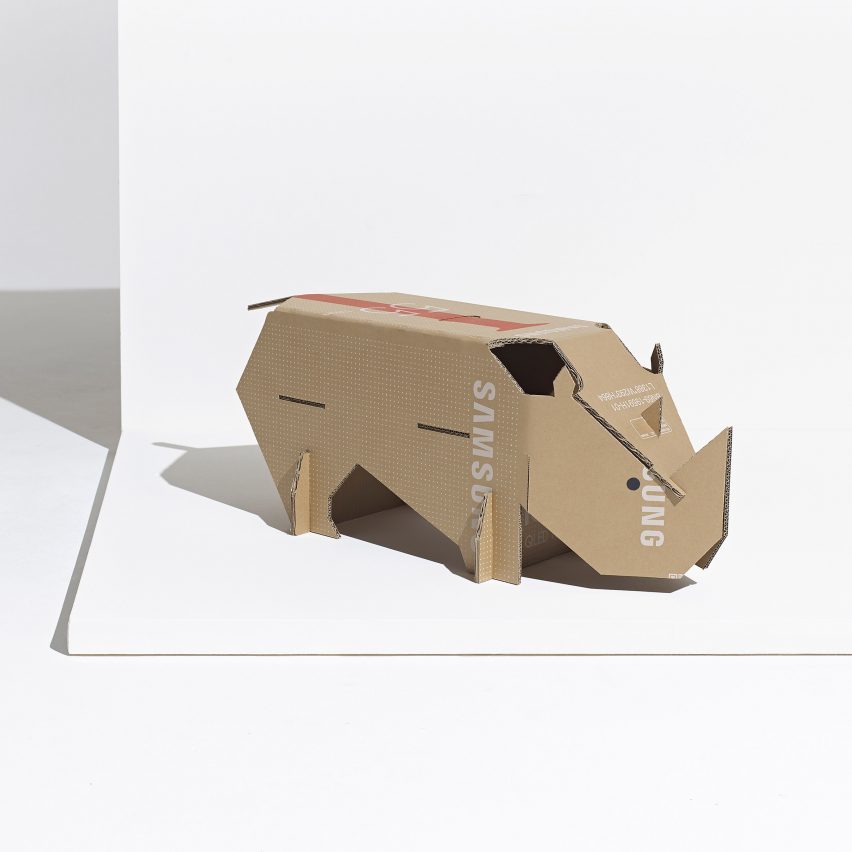
Sarah Willemart and Matthieu Muller, who are based in Waterloo, Belgium, created a series of three companions for kids called Endangered Animals.
There is a polar bear that can be made from Samsung's The Sero box, a black rhinoceros that can be constructed from The Serif box and a sea turtle that can be built from The Frame packaging.
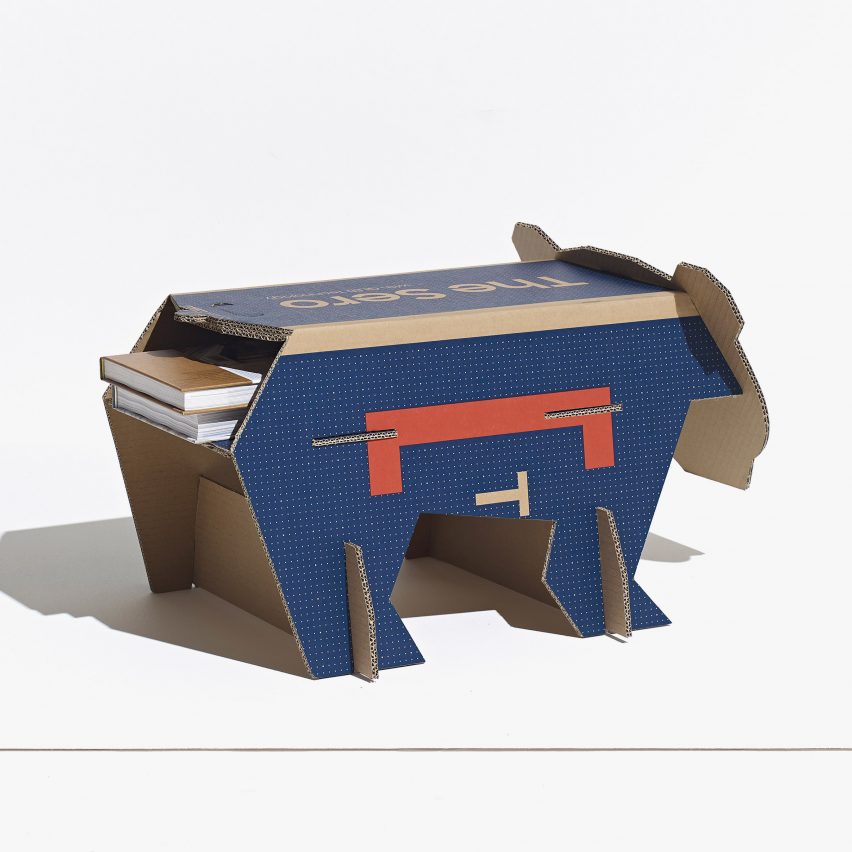
The animals, which are intended to help teach children about declining biodiversity, can be produced without glue and have been designed to be simple to construct.
"The animals are made of four to five pieces only and use the existing folds of Samsung packaging," explained Willemart and Muller.
"It makes the assembly very simple and accessible to children. The polar bear, black rhino and sea turtle can be used as riding stools, drawing tables and secret hideouts."
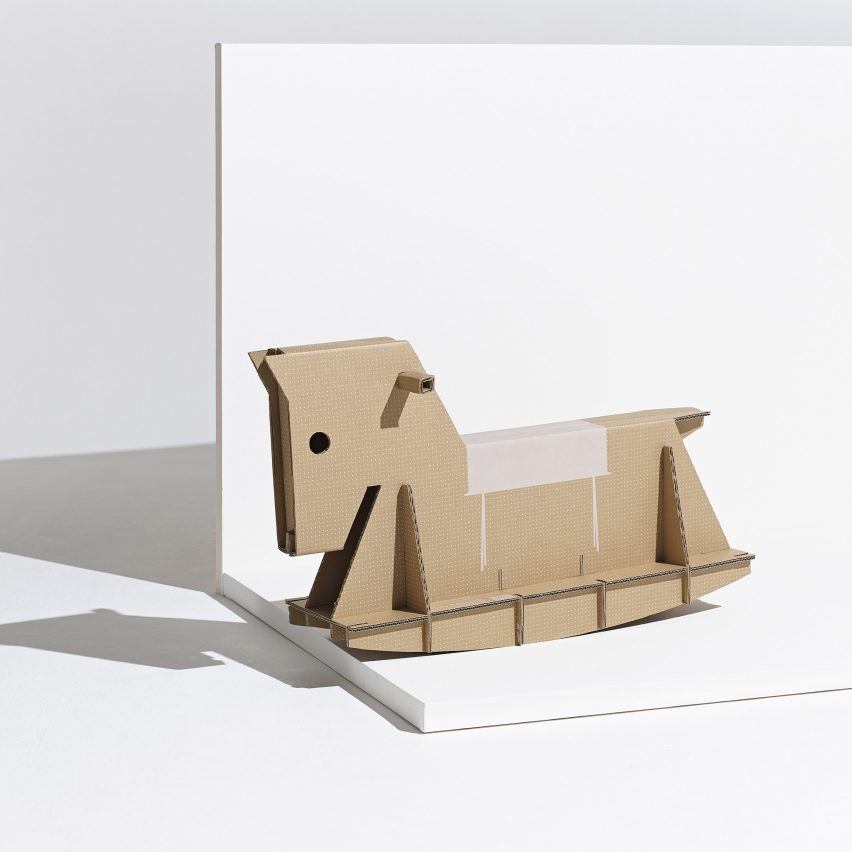
André Cardoso, who is based in Braga, Portugal, created a rocking horse called The Rider.
Designed to be made from the box of Samsung's The Serif television, it is assembled from a series of folded cardboard panels, which are orientated so that the graphic representation of The Serif TV printed on the outside of the box forms a saddle.
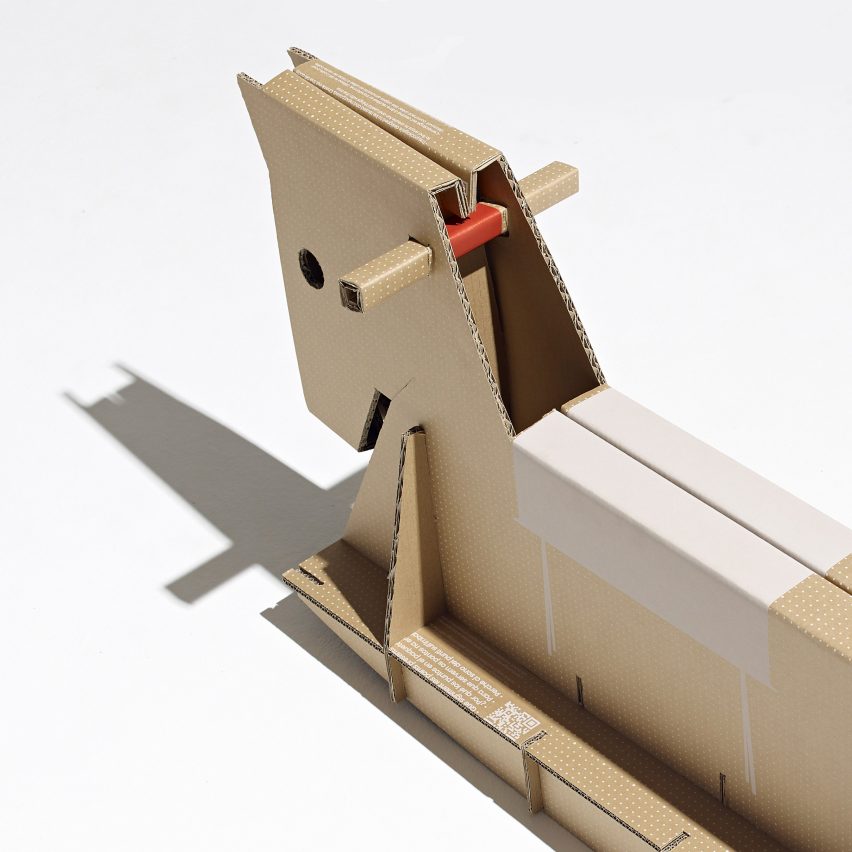
"The design was envisioned for kids between three to five years old and dimensioned to make the most of the available cardboard, reducing waste," said Cardoso.
"The package cardboard capabilities such as thickness, stiffness and flexibility were thoughtfully studied to ensure a stable and sturdy object."
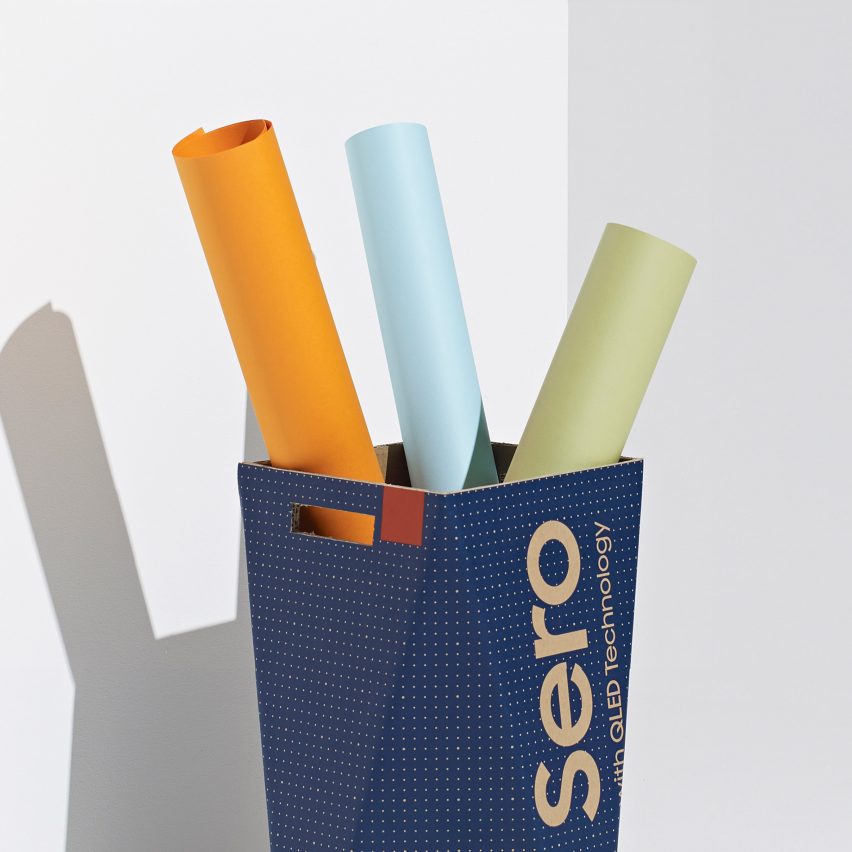
The other three finalist designs are all different forms of storage.
The most simple design is the Twist basket by Akhil Kumar, who is based in Mumbai, India.
The sides of the basket are made from a single panel of cardboard cut from The Sero Box, which is scored and folded diagonally to create a visually appealing faceted form.
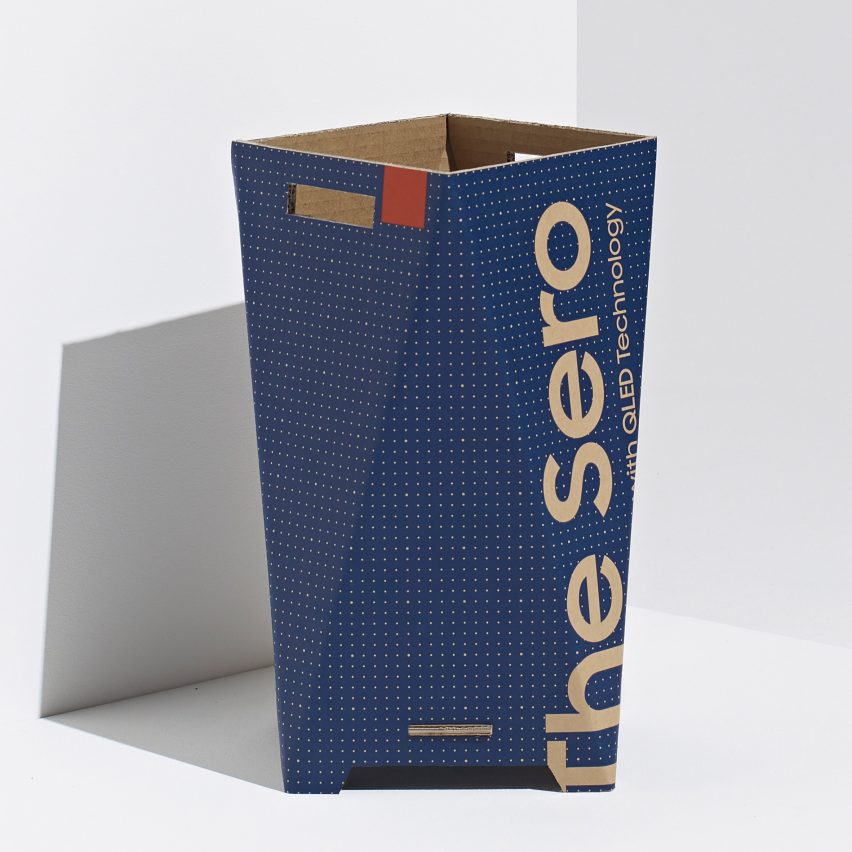
"I wanted to create a design that will require the least amount of cutting and gluing," said Kumar.
"I believe minimizing the effort is a way to encourage people to recreate and repurpose the cardboard boxes. The complex-looking faceted shape is actually rather easy to create. Its form is simple and the angular faces lend a unique visual interest, adding character to any space."
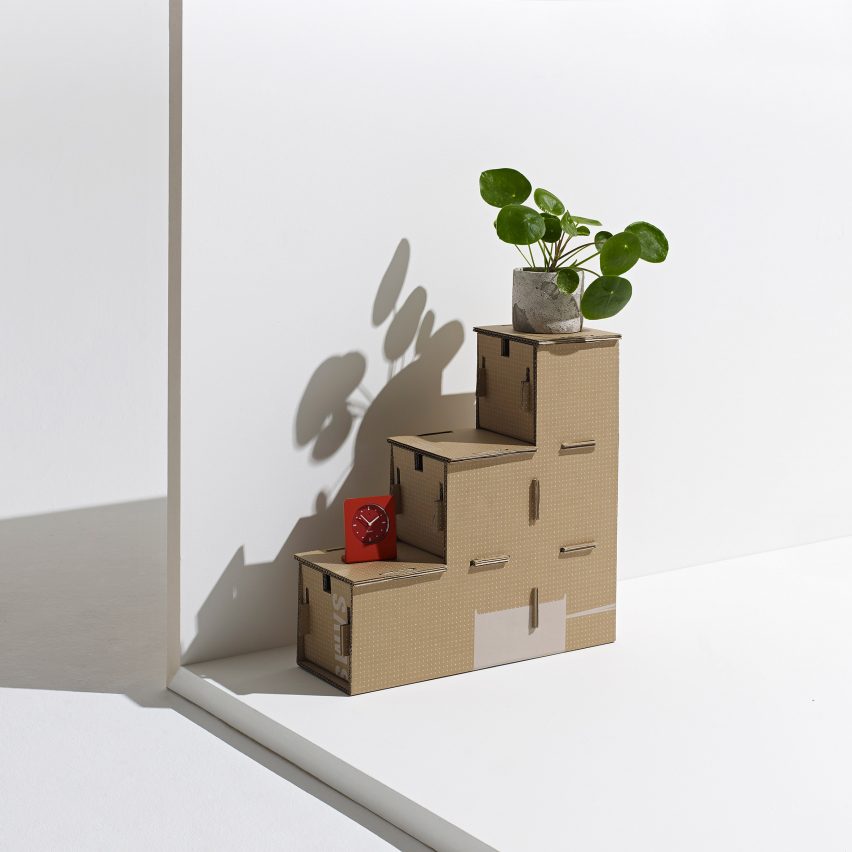
Revaz Berdzenishvili, who is based in Stockholm, Sweden, has a different take on using Samsung's Eco-Packages to create storage.
His Kibe design, which means "stairs" in his native language of Georgian, features a distinctive stepped design that can be used to display objects, as well as housing a series of draws to hide things away inside.
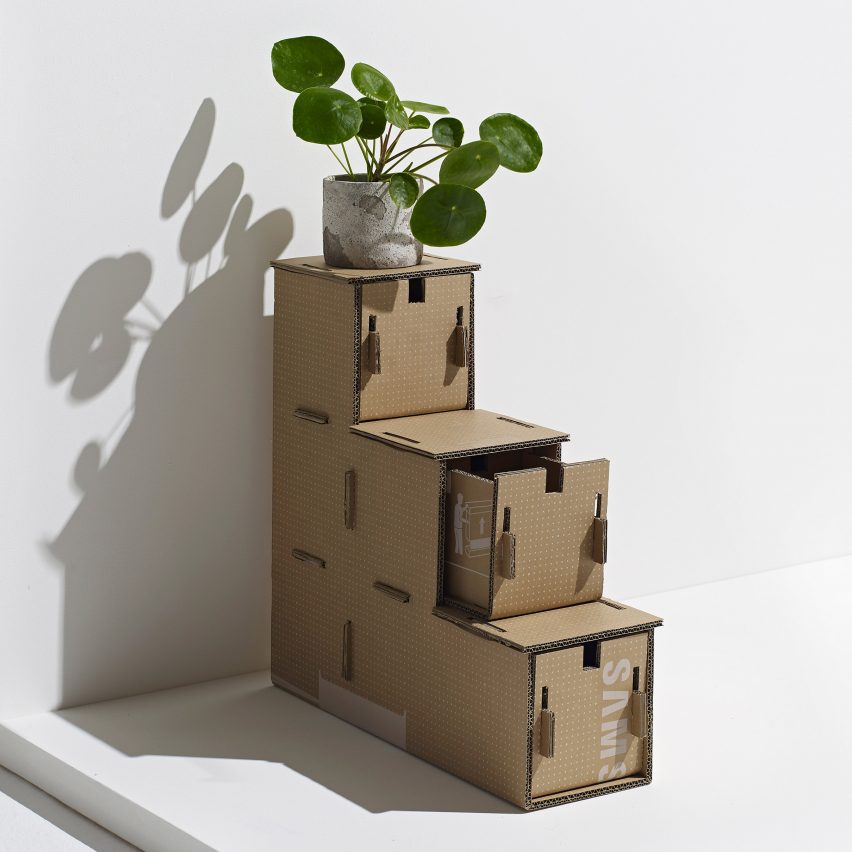
"Many efforts were made to make Kibe delicate and simple to use," said Berdzenishvili. "Clean lines, shadows and light interplay to draw attention to its design."
"The piece does not require glue," he added. "It consists of the main enclosure and five storage units. It leaves minimum cardboard leftovers after assemblage."
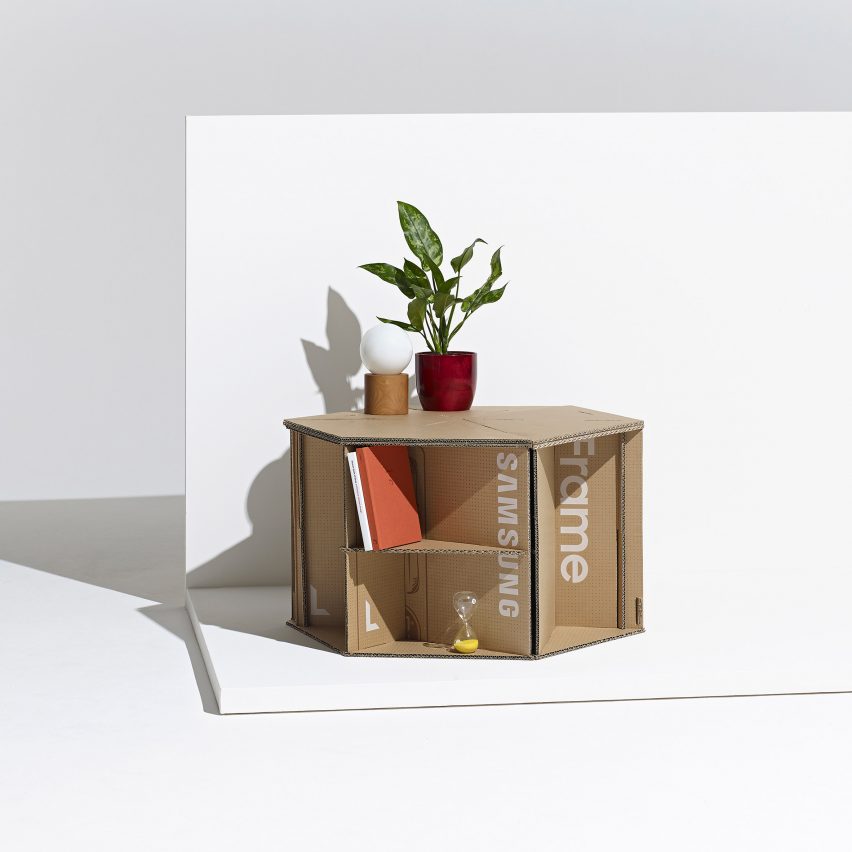
Abigail Whitelow, who is based in London in the UK, created a modular display and storage system called Tessellate.
It comprises six modules, which can be arranged in different ways to create a coffee table, a sideboard, or a variety of different shelving configurations.
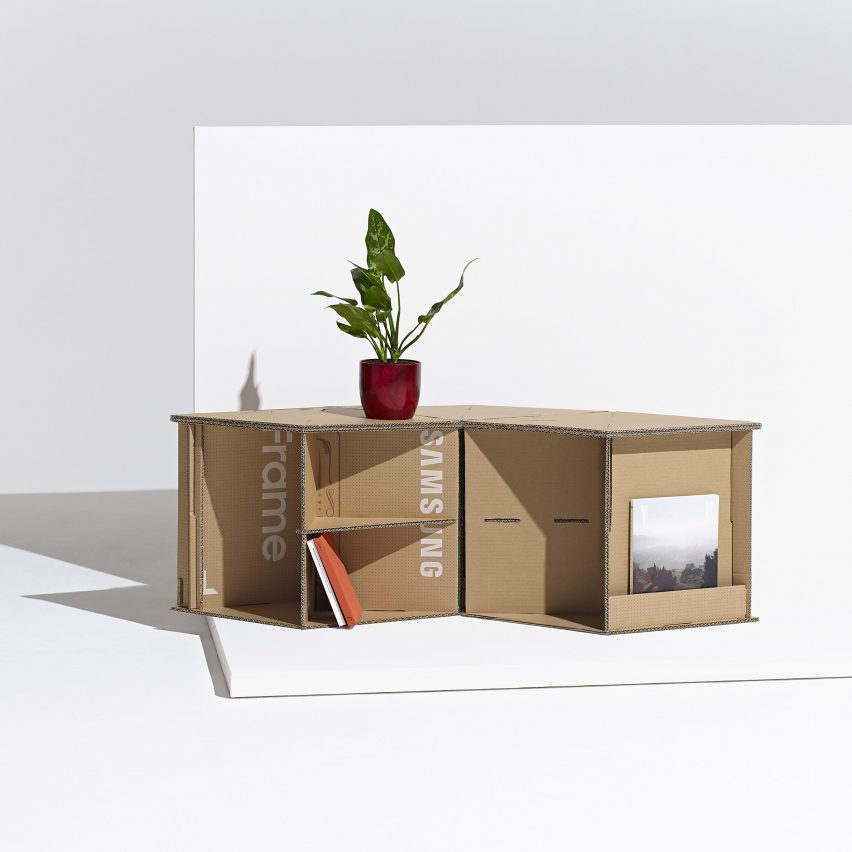
"It's perfect for houses of all shapes and sizes, and can be easily adapted, giving endless possibilities to a cardboard box that would usually be discarded," said Whitelow.
"Each module of Tessellate is an assembly of nine unique components – four modules can be created using The Frame packaging."
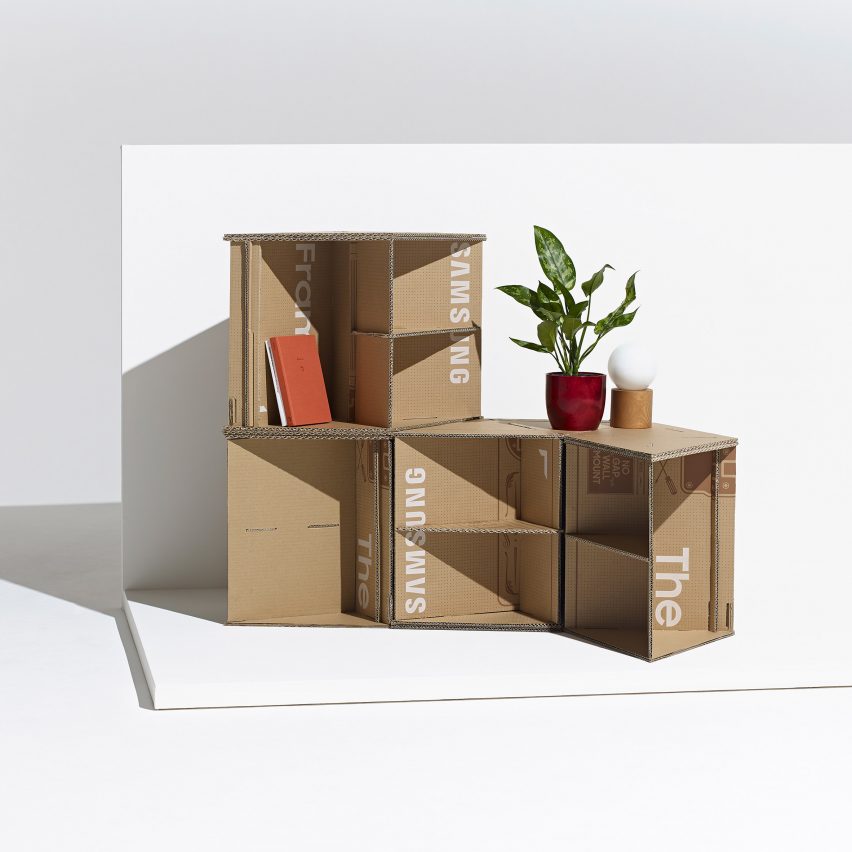
The five finalists were selected by the jury ahead of 15 other shortlisted designs, which included a planter, a sneaker rack and even an amplifier for mobile phones. View the shortlist here.
The final results of the competition will be announced in September. The winner will receive a top prize of $10,000. The runner up will receive $5,000, third place will receive $3,000 and the fourth- and fifth-placed entrants will receive $1,000 each.
The results of the public vote will be announced at the same time, although there is no cash prize for the popular vote.
Photography is by Benjamin Swanson with set design by Jam Studios and retouching by The Wizard Retouch.